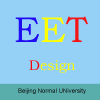-
Knowledge Objects: Hopes and Realities for Instruc
普通类 -
- 支持
- 批判
- 提问
- 解释
- 补充
- 删除
-
-
Introduction
Knowledge Objects may hold the key to quicker and more efficient instructional development. These are small self-contained units of information or instruction. They exist in different media types and may be flexibly combined to form content packages of different kinds. Information objects, for example, could be combined to form things such as job aids, procedural guides, and process documentation. Learning modules are a bit more complicated. They combine information, objectives, practice, and feedback objects.
-
It's a matter of structure
Figure 1 - How does it all work?
The key to flexible design with learning objects is to define, organize and store them in electronic databases (Figure 1). To allow for "queries" (structured searches), the objects must be "tagged" (marked) with predefined characteristics. An example of one possible tagging scheme is presented in Table 1. For a more elaborate scheme, see Merrill, M. D. (2000).-
Design and development
.gif)
Figure 1 - How does it all work?
Once an instructional developer has defined the learning objectives to be met and the context in which the learner is to apply the knowledge and skills to be learned, he/she would enter the design and development stage. In a knowledge-object approach, the developer would then query the knowledge database to select, organize and connect the objects. The time saving part is that he/she would have no need to do extensive research on the subject matter nor develop the material.
-
Table 1 - A simplified tagging scheme
.gif)

-
The dream
Advocates for knowledge objects espouse that the following results are being obtained, although admittedly improvement is required:
Reduced development time and less cost. Flexible structure speeds development through easy integration of objects. The availability of template production can make development even faster.
Just-in-time access. The objects can be accessed when needed.
Reusability. Well designed knowledge objects are autonomous self-contained units which, therefore, lend themselves to be reused in different contexts and combinations, according to need.
Open technology. Good systems are not dependent on specific technologies or production platforms.-
Is it just fiction?
Except for some particular initiatives that seem to be moving in the right direction (see last section), the above scenario is still not easily attainable. Some particularly challenging instructional issues must still be faced by knowledge object developers. Among these are the following:
•Achieving truly free-standing knowledge objects;
•Making knowledge objects usable across multiple platforms;
•Defining an appropriate standard for an hierarchical tagging schema;
•Making consistent use of terminology, presentation tone, and use of keywords;
•Facilitating the contextualization of content.-
Where stand our hopes?
The success of an object-based strategy is contingent on good planning, adequate knowledge management strategies, effective structuring schemes and, of course, the database technologies to be used. As players from the high-tech community get involved, the technical issues will be quickly resolved. It is in the educational side, then, that lay the greatest challenges. However, good design guidelines and theoretical frameworks are being developed. The expectations are high, but seem justifiable.-
More on the subject
Longmire, W. (2000, March). A Primer on Learning Objects. Retrieved November 15, 2003 from, http://www.learningcircuits.org/mar2000/primer.html.
Muraida, D. J., Grimes, G. R., and Wilen, S. B. (Date?). CBT Data /Knowledge Acquisition: Using Knowledge Objects to Prototype Courseware. Retrieved November 15, 2003 from, http://www.internationalmta.org/1998/9820.html.
Paquette, G and Rosca I (2002). Organic aggregation of knowledge object in educational systems. Canadian Journal of Learning and Technology. Volume 28(3) fall/autumn. Retrieved from, http://www.cjlt.ca/content/vol28.3/paquette_rosca.html.-
Author
Jose L. Arbona
Director, Multimedia Educational Technology Center
University of Puerto Rico at Aguadilla -
-
- 标签:
- tagging
- development
- educational
- objects
- learning
- retrieved
- instruc
- design
- http
- hopes
- realities
- objects.
- knowledge
-
加入的知识群:



学习元评论 (0条)
聪明如你,不妨在这 发表你的看法与心得 ~